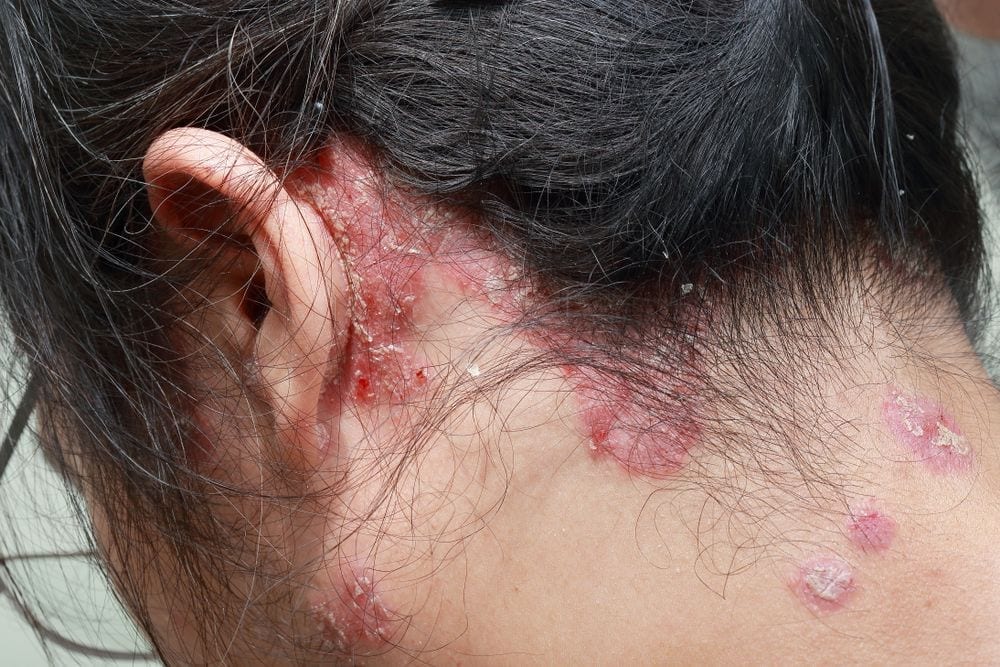

What is Psoriasis?
Psoriasis is a common inflammatory condition, which manifests itself on the skin and sometimes the joints.
When a person has psoriasis, their skin replacement process speeds up, taking just a few days to replace skin cells that usually take 21-28 days.
This accumulation of skin cells builds up to form raised ‘plaques’ on the skin, which can also be flaky, scaly, red on caucasian skin, darker patches on darker skin tones, and itchy.
There are different causes of psoriasis. Some people will have a family history of the condition, but others may not. A flare-up of psoriasis can be triggered by a number of factors, such as stress or anxiety, injury to skin, hormonal changes, or certain infections or medications. Psoriasis is not contagious.
Where on the body does Psoriasis occur?
Psoriasis can occur on any area of the body, including the scalp, hands, nails, feet and genitals.
At least 1 million people in the UK alone are thought to have psoriasis.
It affects women and men equally and can occur at any age.
Is there a cure for Psoriasis?
Unfortunately the condition follows a chronic course and there is no cure for it. However we are able to use a number of different approaches to help patients’ manage their psoriasis from topical treatments to systemic drugs. Lately there has been an increased use of biologic therapy which is considered to be the next generation of treatment for improving the lives of patients with this condition.
What treatments are available for Psoriasis?
Topical treatment is something that is applied directly to the skin or body surface. Common examples are lotions, creams, ointments, gels and shampoos. The aims of topical psoriasis treatment are to remove excess scaly skin and calm the underlying inflammation.
Systemic drugs (non-biological therapy) used to treat psoriasis, include Methotrexate, Ciclosporin, Acitretin and Apremilast. If these are considered appropriate then your Consultant Dermatologist will discuss them in further detail with you.
Biologic therapy is designed to mimic normal human molecules and block the activity of a naturally occurring chemical known as ‘cytokines’. We know that cytokines are contained in psoriatic plaques that lead to redness, thickening and flaking of the skinproducing inflammation. Biologic therapy is available by prescription from your Consultant Dermatologist and are given as injections into the skin (e.g. adalimumab, etanercept and ustekinumab). Biologic therapy is not suitable for every patient but in some patients it is extremely effective at controlling their psoriasis.
How do I get help with my Psoriasis?
As a first step an appointment with a Consultant Dermatologist will allow a clinical diagnosis to be made. We can usually offer appointments within a few days, for new patients who are experiencing an acute flare up of their psoriasis. Depending on the severity of your condition they may prescribe topical or oral medicine. You will then be subject to monitoring and review over the next 3 to 6 months.
To make an appointment to see a Consultant Dermatologist in London about your psoriasis please telephone us on +44 20 7935 6358, send us an enquiry on the Contact Us Page or email appointments@drhausdermatology.com.
Recommended Treatments:
